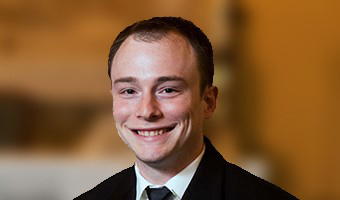“Anti-Money Laundering is an emerging field which is quickly becoming one of the most sought after positions in the banking world,” says Michael Richard, who works as an anti-money laundering investigator for Discover Financial Services.
The two primary skills he brings to this work are quantitative analysis and finding patterns within data.
Michael graduated with his B.A. in Sociology and Mathematics in 2012, then with his M.A. in Sociology in 2013.

As an undergraduate, he focused on consumer behavior with a concentration on identity creation through consumption, and he continued that focus as a graduate student with additional focus on debt theory and data analysis.
In 2015 he earned his Certified Anti-Money Laundering Specialist (CAMS) credential and is preparing for the certified fraud examiner (CFE) credential as well.
What Does an AML Investigator Do?
His job requires a variety of skills including writing, data analysis, critical thinking, and trend finding, as well as knowledge of normal consumer behavior and the ability to identify potential abnormalities.
He also must keep current with a broad range of industry procedures and regulations and federal laws including, but not limited to the United States PATRIOT Act and the Bank Secrecy Act as well as adhere to government sanctions lists.
Michael’s work as an AML investigator involves investigating potentially suspicious activity within customer accounts for potential money laundering or terrorist financing and then documenting that investigation for use by law enforcement.
His also conducts reviews of high risk customers and is a point of contact for communication with other financial institutions.
Richard is also in charge of training and managing the current contractor group within the AML department.
Exciting and Satisfying Work
“I love putting all the pieces together during the investigation,” he says.
“We use the analogies of a puzzle or Paint by Numbers while working. First you develop a profile on the customer, then you review the associated transactions, and then based off of that, you have to develop an idea of what is going on.
“Not only is it exciting once you’ve figured everything out, but then it is also satisfying knowing that you are contributing to law enforcement.”



















One Comment